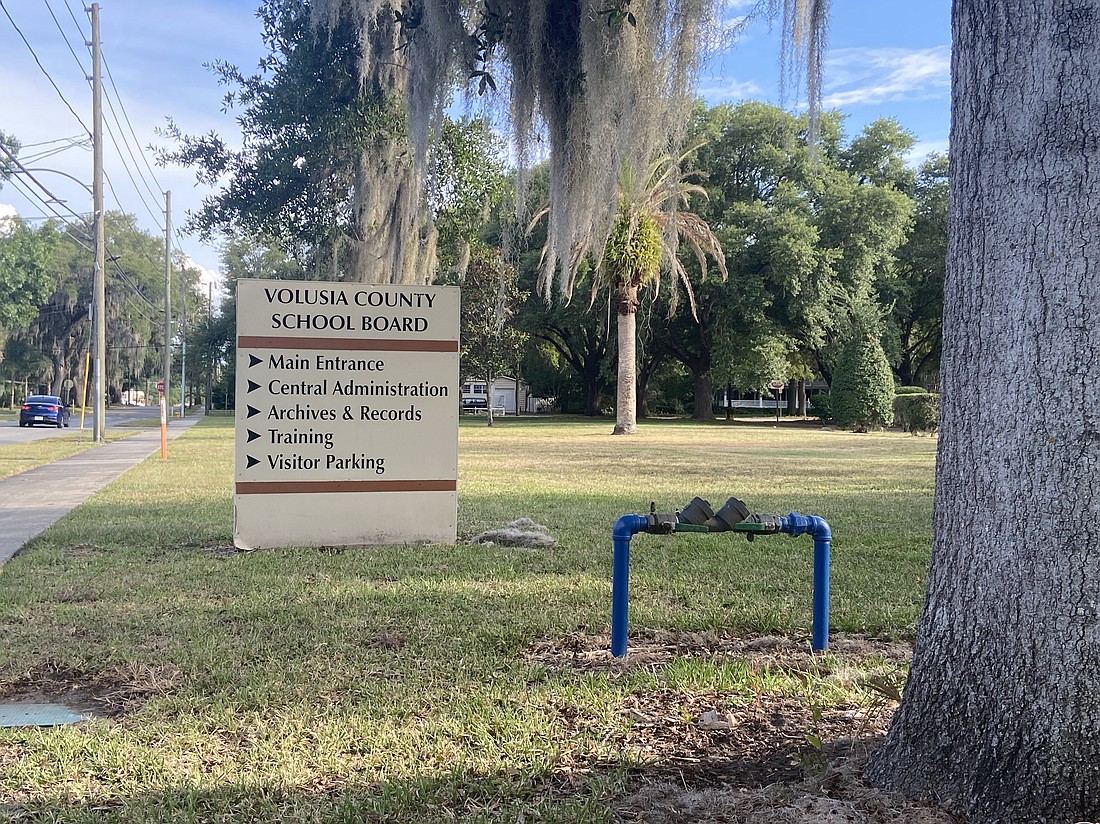- April 25, 2024
-
-
Loading

Loading

Starting Aug. 1, Volusia County Schools students will face stiffer penalties for on-campus drug and alcohol possession, vape use and possession, consensual sex and malicious threats.
The Volusia County School Board approved the student code of conduct changes during a board meeting on May 23. The new student services resource and support guide was presented at the meeting by Rose Roland, assistant superintendent for Student Services.
"We want to make sure that is clear to students and parents and administrators what the expectations are once our kids get back to school," Roland said.
The district has seen an increase in drug and alcohol possession in schools, Roland said. Based on feedback from administrators, the district decided to increase the three- to five-day suspension for a first offense to a 10-day out-of-school suspension.
The popularity of CBD gummies has also impacted schools, Roland added.
The district will also issue a 10-day out-of-school suspension for any student caught with or using CBD gummies. Those students will also be referred to a District Student Placement Committee.
A 10-day out-of-school suspension will also be the consequence for students under 16 caught having sex.
"It's not to continue to put kids out of school, but we have to get their attention right away, and I think when we give this information up front, the parents will know and the students will know as well," Roland said.
The district's guide also outlines that all reports of bullying must be investigated.
Malicious threats that do not result in an assault have been redesignated from a level three offense to a level four offense.
Such threats include threats made on social media or through texts, handwritten notes or verbal communication. They may require law enforcement involvement, depending on the severity of the threat.
A level three offense is considered a major offense that results in but is not limited to a suspension, a civil citation, restitution or Saturday school, according to the district.
A level four offense is more severe and could result in expulsion, administrative assignment to an alternative education program, restitution, concern of harm referral or a student services referral.
The guide also addresses vaping.
Students caught with a vape face a five-day suspension, and those caught using them face a 10-day suspension and a referral to DSPC.
School Board member Anita Burnette said the district needs to ensure the guide's policies are followed at all schools.
"We have to follow the matrix for this because if we don't, the students will know, and then it's going to continue and continue," Burnette said. "So we have to enforce with our school leadership, 'This has to be done, or we're never going to get out of the vicious circle.'"
Vaping has a growing problem for the district, Roland said.
“Lots of times when nothing happens, the kids sometimes think it’s just a joke, and it’s not — because they often share, and then it can affect a great number of kids,” she said.
School Board member Carl Persis asked if the district had a policy regarding the sale and distribution of vapes at school. Roland said a plan is in the works.
"We know that's what's going on, because middle school kids can't buy it legally," Persis said. "They're buying it from other middle school students who probably are getting it from high school siblings or someone else, and it's trickling down and they're selling it."
School Board Chair Jamie Haynes said vaping is also becoming a problem at elementary schools. Haynes urged parents to help the district minimize the likelihood of children getting vapes and other drugs by sending them to school without cash.
"I never sent my kids to school with money, because that just lends itself to, then, they can get their hands on all of this," she said.
Persis suggested that the district continue implementing counseling measures for students reentering schools after suspensions.
Each suspension will include a reentry meeting with parents, evaluating the child's actions, before the child can return to school, according to the district.
School Environmental Safety Incident Reporting was initiated in 1995-1996.
The reports “collect data on 26 incidents of crime, violence and disruptive behaviors that occur on school grounds, old-school transportation and at off-campus, school-sponsored events, during any 24-hour period, 365 days a year," according to the district.
Such incidents include aggravated battery, alcohol, bullying, fighting, robbery, trespassing, sexual assault and arson, among others.
Because these acts are severe, law enforcement agencies must be notified, and the district cannot intervene in law enforcement officers' investigations.
Roland said under-reporting is a problem in Florida: Some districts are not properly reporting incidents, causing further problems in their schools.
But that's not the case for VCS, Roland told the board.
“We pulled up the report, and our county was one that was pretty much commended for making sure we were putting in our accessory events accurately and not under-reporting,” Roland said.
The district is also coming up with a plan for schools to keep investigation statements for at least three years so that attorneys and the court system can more easily access them.
Senior Editor Jarleene Almenas contributed to this story.